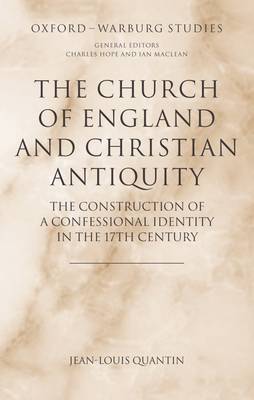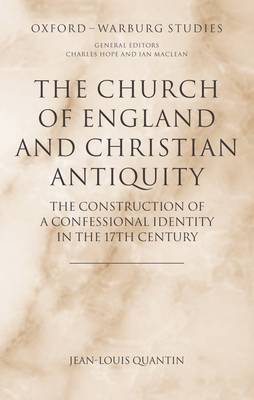
- Afhalen na 1 uur in een winkel met voorraad
- Gratis thuislevering in België vanaf € 30
- Ruim aanbod met 7 miljoen producten
- Afhalen na 1 uur in een winkel met voorraad
- Gratis thuislevering in België vanaf € 30
- Ruim aanbod met 7 miljoen producten
Zoeken
The Church of England and Christian Antiquity
The Construction of a Confessional Identity in the 17th Century
Jean-Louis (, Professor of the History of Early Modern Scholarsh
€ 315,45
+ 630 punten
Omschrijving
Jean-Louis Quantin shows how the appeal to Christian antiquity played a key role in the construction of a new confessional identity, 'Anglicanism', maintaining that theologians of the Church of England came to consider that their Church occupied a unique position, because it alone was faithful to the beliefs and practices of the Church Fathers.
Specificaties
Betrokkenen
- Auteur(s):
- Uitgeverij:
Inhoud
- Aantal bladzijden:
- 518
- Reeks:
Eigenschappen
- Productcode (EAN):
- 9780199557868
- Verschijningsdatum:
- 12/02/2009
- Uitvoering:
- Hardcover
- Afmetingen:
- 218 mm x 145 mm
- Gewicht:
- 768 g

Alleen bij Standaard Boekhandel
+ 630 punten op je klantenkaart van Standaard Boekhandel
Beoordelingen
We publiceren alleen reviews die voldoen aan de voorwaarden voor reviews. Bekijk onze voorwaarden voor reviews.







